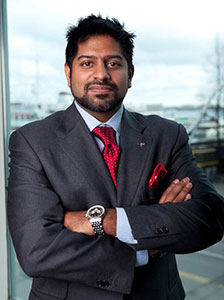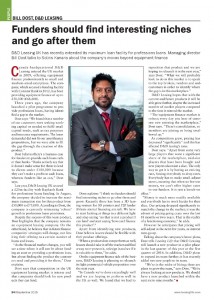D&D Leasing UK has recently extended its maximum loan facility for professions loans. Managing director Bill Dost talks to Sotiris Kanaris about the company’s moves beyond equipment finance.
Canada-headquartered D&D Leasing entered the UK market in 2009, offering equipment finance predominantly to small and medium-sized enterprises. The company, which secured a funding facility with Conister Bank in 2012, has been providing equipment finance of up to £50,000 (€68,600).
 Three years ago, the company launched a pilot programme to provide professions loans, having identified a gap in the market.
Three years ago, the company launched a pilot programme to provide professions loans, having identified a gap in the market.
Dost says: “We found that a number of our customers were seeking working capital or needed to fulfill small capital needs, such as tax purposes and insurance requirements. The loans demanded did not fit our asset finance propositions, but we were able to fill the gap through the creation of this product.”
Dost believes there’s a business case for funders to provide such loans rather than banks.”Banks actively say that it doesn’t make sense for them to lend to clients under £100,000 because they can’t make a profit on such loans, whereas funders like us can,” Dost says.
Last year, D&D Leasing UK secured a £20m facility with Raphaels Bank for professions loans funding. In August, the company decided to increase the maximum transaction size for this product from £50,000 to £75,000. According to Dost, the company is currently witnessing ‘robust’ growth in professions loans provisions.
Despite the success of this loan product, Dost highlights that the company remains an equipment leasing company. On the other hand, he believes that in future finance companies’ strategies will change, not limiting their offering to a certain number of loans and leases.
“As the financial market changes, you will see a time where it will not be about funding an asset or providing a professions loan, but about finding the product the customers need and providing it for them,” Dost explains.
Dost says that competition in the UK equipment leasing market is intense and that companies should look for new products they can fund.


